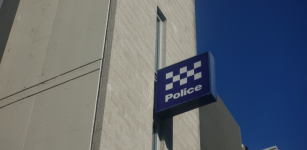Public Given Access to Police Brutality Hearing

The Independent Broad-based Anti-Corruption Commission is investigating allegations that a woman was brutalised at the hands of two police officers at Ballarat Police Station.
The proceedings are being streamed live into a well-known Ballarat restaurant this week, to enable the public to see ‘justice being done’.
The public screening has outraged the Police Association, which recently lost a High Court bid to block IBAC from giving access to the public.
A Police Association spokesperson said: “To treat these hearings as a form of entertainment is tasteless and shows appalling judgement.”
As discussed in a previous blog, police want hearings about police brutality and corruption to be private, despite the general rule that they should be open to the general public.
‘Open Justice’
Hearings are generally ‘open’ to promote the democratic ideals of transparency and accountability – especially given that those presiding are not elected.
This idea has been recognised for centuries, with 19th century English philosopher Jeremy Bentham writing:
“In the darkness of secrecy, sinister interest and evil in every shape have full swing. Only in proportion as publicity has place can any of the checks applicable to judicial injustice operate. Where there is no publicity there is no justice. Publicity is the very soul of justice. It is the keenest spur to exertion and the surest of all guards against improbity. It keeps the judge himself while trying under trial.”
Open hearings are seen as an important safeguard against injustice and corruption which could otherwise fester in a secret, closed justice system.
And it’s not only judges who are open to scrutiny – the words and conduct of witnesses, defendants, criminal lawyers, prosecutors and police are more transparent in an open system, which can act as a deterrent against lying and abuses of power.
Ideally, an open system is supposed to promote the notion that justice must be done, as well as seen to be done.
IBAC’s Decision
The IBAC stands firmly by its decision to allow ‘open justice’, asserting that open justice is in the public interest. The restaurant will not be serving customers during the broadcast, but simply providing space for public to attend, in a manner similar to the way extra venues were used during the recent Royal Commission hearings.
The Commission intends to show graphic footage from closed circuit cameras inside Ballarat Police Station where the alleged victim was held for 16 hours before charges were laid against her.
IBAC successfully applied to the Supreme Court of Appeals for permission to show the footage, which is believed to corroborate the alleged victim’s account of being assaulted by police.
According to media leaks, the woman was a serving member of the Victorian Police Force who was arrested while on sick leave last year, after extended claims of bullying by colleagues. She had served more than 30 years on the Force, including a stint with the former Ethical Standards Department, which investigates corruption within the ranks.
It is reported that she had been drinking at a Ballarat hotel, before being arrested and taken to the station where police conducted a mental health assessment.
It is expected that the video will show the woman being doused with capsicum spray, forcibly strip-searched in the presence of a male officer, thrown under a hot shower, and kicked and stomped on by two officers – one male and one female – as she lay defenceless on the ground in handcuffs.
The accused officers are said to have been well-aware she was a member of the force that did not ‘tow the line’.
In December last year, an internal police investigation found the two officers had not committed any criminal offences, before overturning their suspensions.
But the investigation did find “a number of poor decisions were made in the management of a prisoner, which could still lead to disciplinary charges against the officers, who cannot be named for legal reasons.”
The current proceedings are part of a broader investigation by the Victorian anti-corruption watchdog to determine if human rights violations had occurred at Ballarat Police Station, which has the State’s worst record for complaints about excessive force.
Several officers based at the police station at the time of the incident are expected to be subpoenaed to give evidence.






